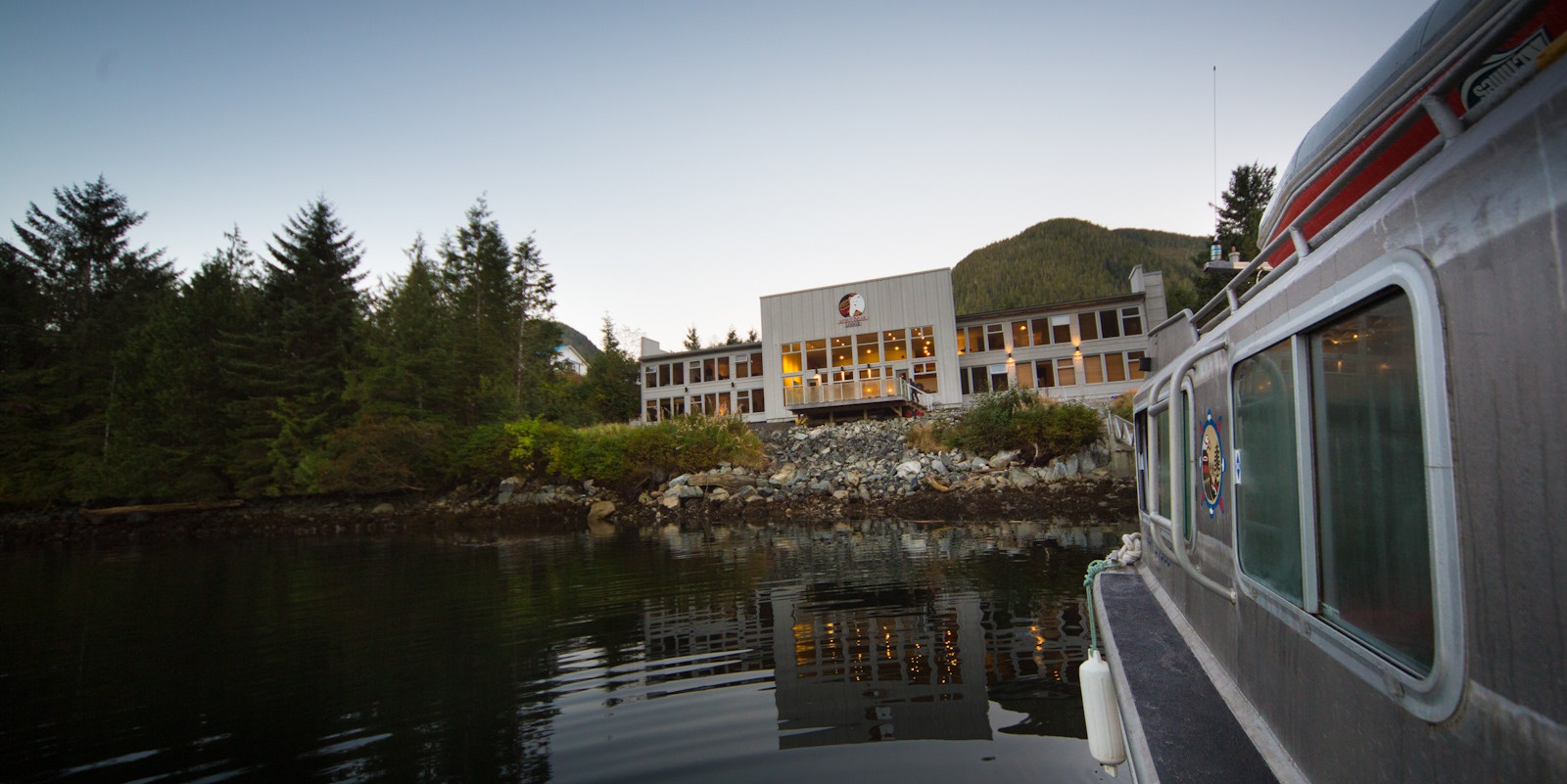Border and restaurant closures, collapsing market demand, and an uncertain future have left coastal First Nations businesses hard hit by the economic fall-out of COVID-19. Many say the existing government programs to support business simply don’t fit.
In Klemtu, Spirit Bear Lodge has officially closed for the June and July tourism season. “And there’s an extremely high likelihood the rest of the season will follow,” says general manager John Czornobaj. “We were just gearing up to start preparing for the season and then COVID-19 happened.” While the reservations team is still working, 43 local staff have been affected. Since staff can’t do their work from home, Czornobaj says, the 75 per cent federal wage subsidy for employees doesn’t apply.
“This couldn’t have come at a worse time for the Haida,” said Candace Dennis, CEO of the Haida Development Corporation (HaiCo). In a shift away from fishing to cultural tourism, she says new cabins were scheduled to open at the popular Haida House resort in Tllaal. With a large number of cancellations from Europe and the US, the business is waiting to see if it can make a go of the season.
“The impact on the local economy is going to be huge,” says Dennis. While HaiCo plans to access the federal wage subsidy, she says none of the other existing government programs apply. “We’re going to need everything we possibly can,” she adds. “I think we’ll be able to salvage some of the season, but it’s going to be very different from what we were hoping for.”
Czornobaj says canceling the Spirit Bear Lodge summer season means a potential half million dollars in lost revenue to the Kitasoo/Xai’Xais Nation – plus $500,000 more in local staff wages. “We’re going to do our best to employ as much of our staff as we can,” he says. “We just don’t know what that’s going to look like yet.”
“A lot First Nations businesses are just finding their stride and this kind of thing knocks them back,” says Michael Uehara, CEO of the Coastal Shellfish Corporation. He says the federal government needs to make good on its promise to help Indigenous companies.
“It’s not about funding shareholders and executives. Or massive revenues that are going to make people rich,” says Uehara. “This is about supporting businesses so they can sustain communities.” Coastal Shellfish Corporation is keeping its doors open for now, but Uehara warns: “We’re facing a market situation where there’s a collapse of market demand for our product. The timing couldn’t have been worse.”
Last year, the company opened a new shellfish processing plant in Rupert – the first to start up in Canada in 15 years. It planned to sell shucked scallop meat to an expanded North American market. When COVID-19 hit in March, the product launch was cancelled. Restaurant sales – comprising 90 percent of revenues – went to zero. And processing jobs for up to 70 people were lost. “We’re faced with some pretty stark financial realities,” says Uehara.
In Bella Bella, the Heiltsuk Fisheries plant is operating with a skeleton crew after the closure of the commercial spawn on kelp fishery. Plant manager Shawn Baybutt says the collapse of demand from Japanese markets will cost as many as 40 plant jobs and up to $9-million in lost revenue for processing plants and fishers.
The closure affects about 700 Heiltsuk Nation members who are uncertain whether they will qualify for the Canada Emergency Response Benefit and other financial aid programs.
A new venture to process prawns for China markets is also up in the air, says Baybutt. “There’s a lot of uncertainty with international markets. It depends on what’s going to happen in the next two months. We’re just riding it out.”


